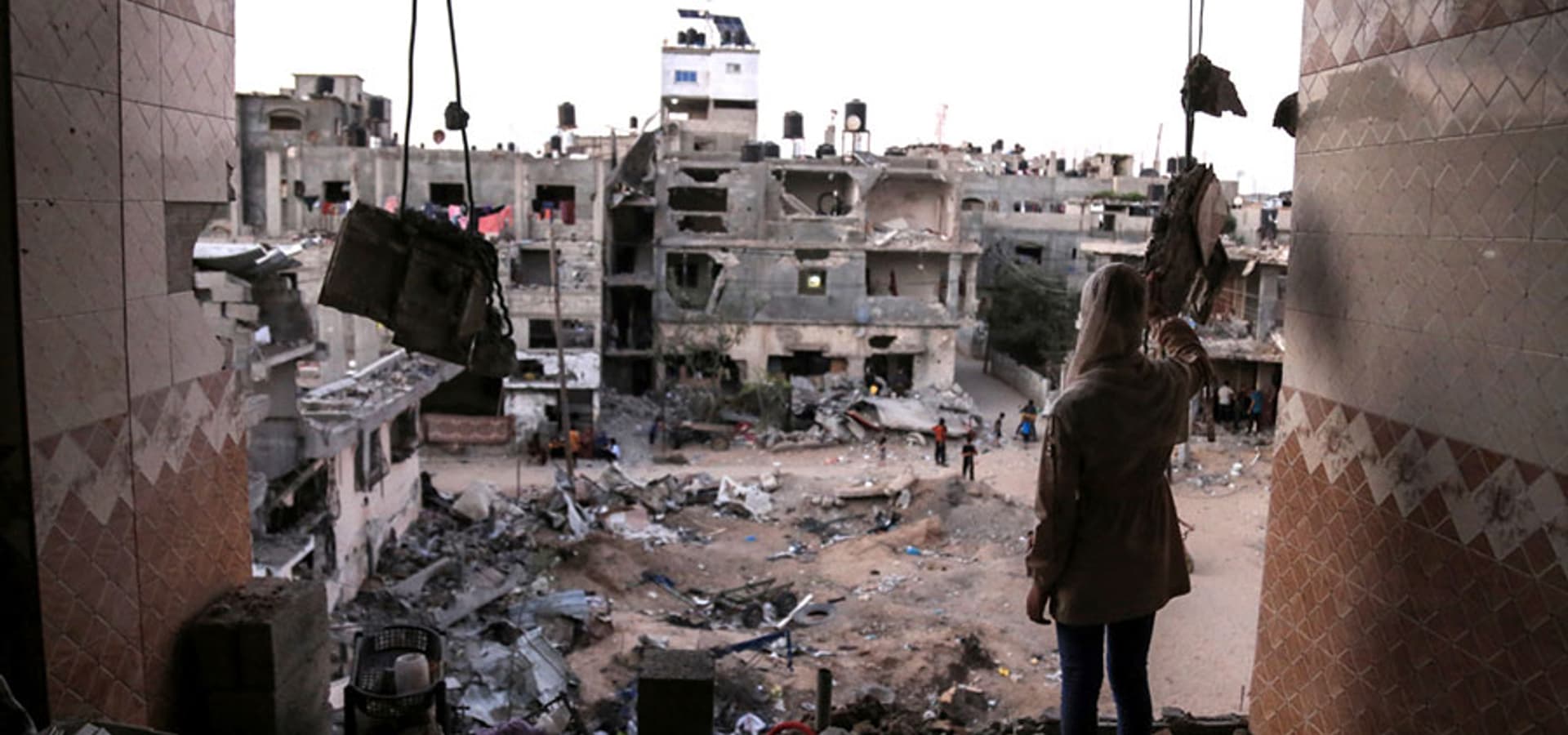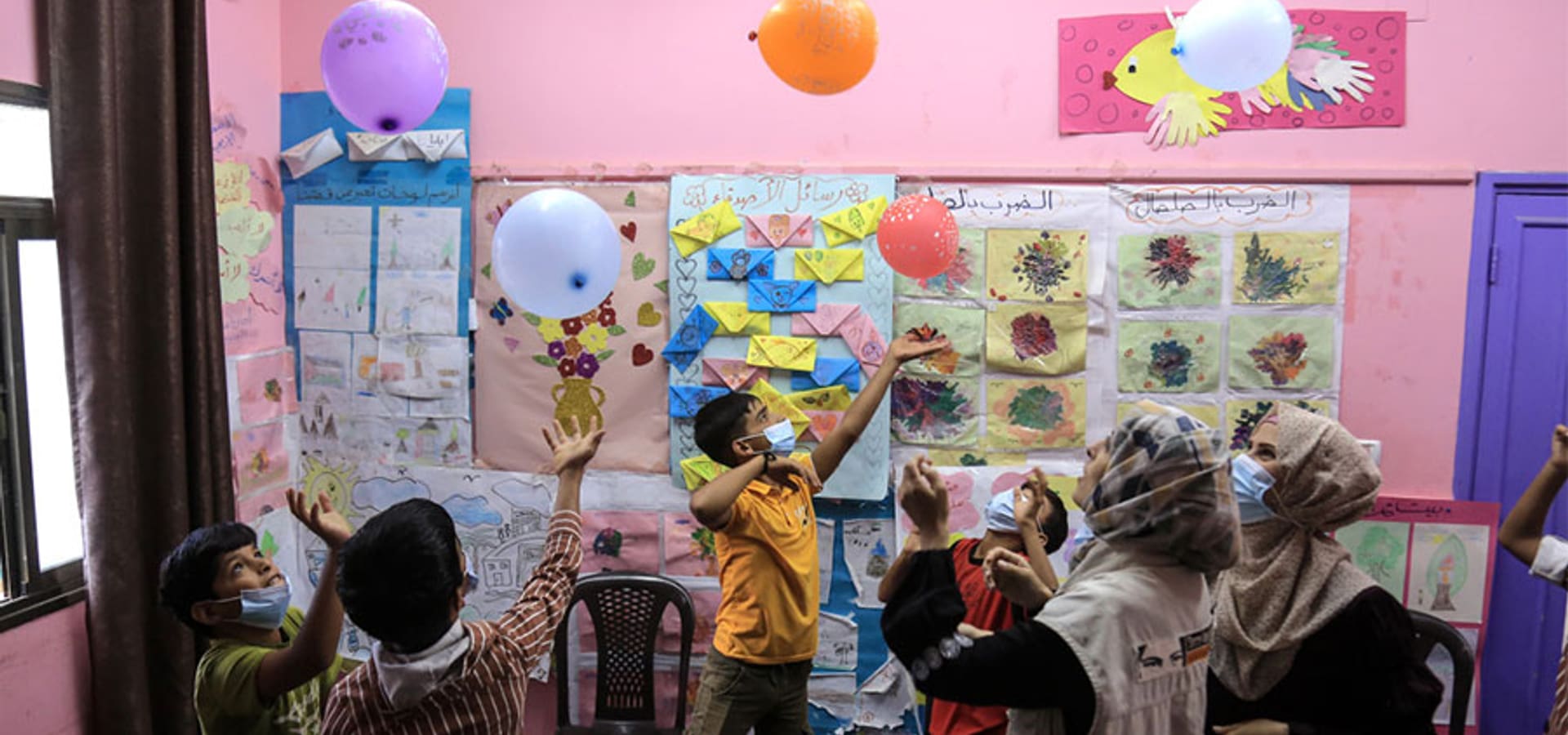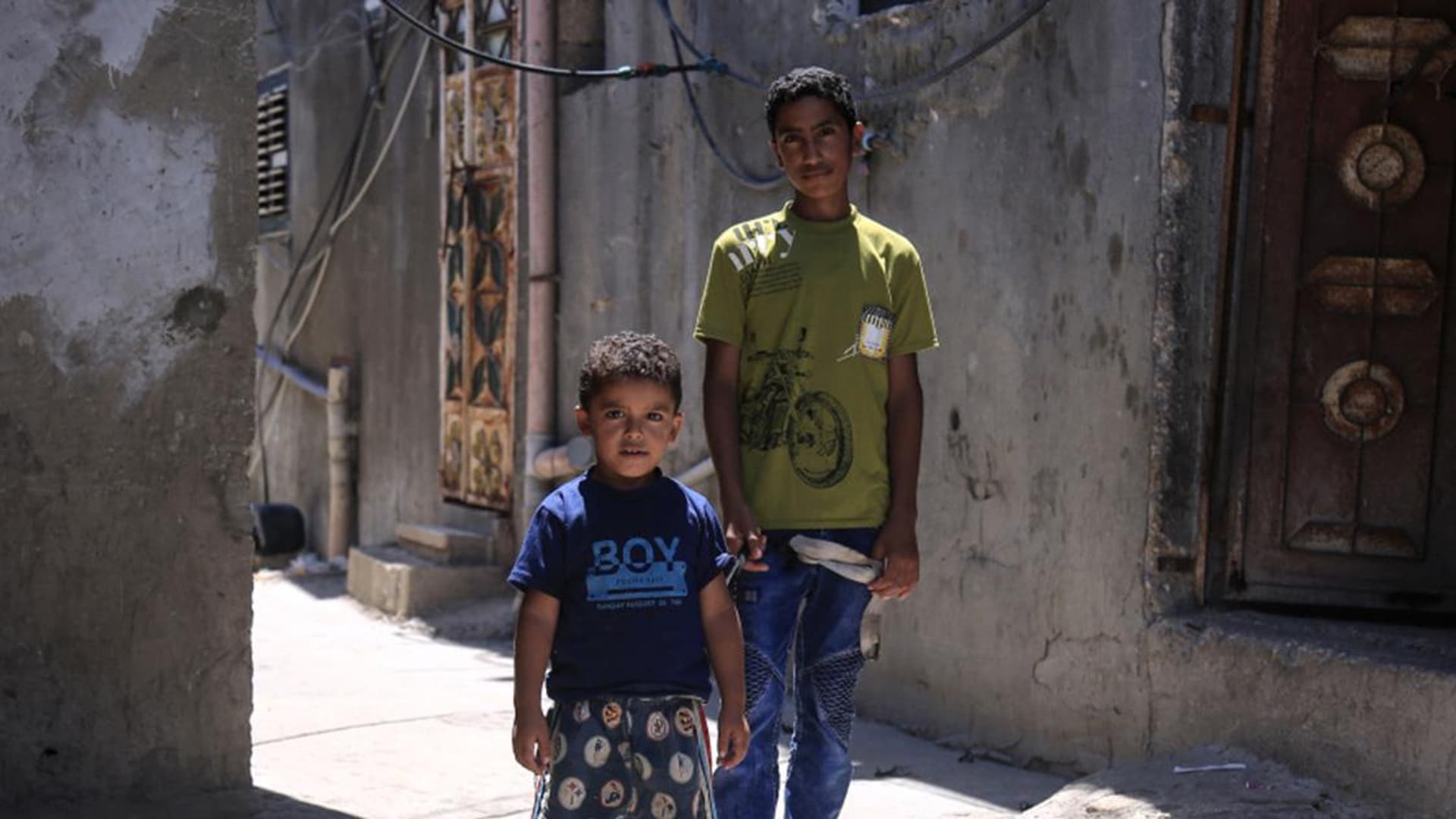In Gaza, most children below the age of 15 have never seen the outside world. The imposed blockade has undermined their families’ living conditions. Due to poverty, children work instead of going to school. COVID-19 restrictions and the recent violent confrontations in May 2021 increased their psychological struggle. When will they get the chance to live like other children?
The families in Gaza were preparing for the Eid festivities after Ramadan last May when the first bombs hit. Mahmoud*, a 15-year-old boy, was at home with his family. Through the metal sheet of their house on a rooftop, they could see the flames of the explosions. “We were terrified when the rockets lit the area. We went downstairs to my grand-father’s house. We stayed there until it got calm and they said it was truce. I was afraid and did not feel like going upstairs again.”
After eleven days of conflict and numerous appeals from the international community, a ceasefire came into effect. Together with three local partner organisations covering the whole Gaza Strip, the teams of Terre des hommes (Tdh) provided psychological first aid, recreational activities and distributed hygiene material to the most affected families.
Asmaa Abu Reida, the counsellor working with Tdh’s partner organisation in one of the four child protection centres explains: “We are in a border area and the general atmosphere here is full of fear and stress. We support children and their parents to deal positively with psychological trauma. With parents we look at how to accompany children in crisis and war situations.”

A young girl looks out onto the street from her destroyed flat.
Child labour
The political tensions combined with the protracted blockade and the COVID-19 crisis have had a dramatic impact on the economic situation of the Gaza Strip. More than half of its population is unemployed and lives under the poverty line. Domestic and social problems have increased due to the lockdown that was added to the bad financial situation. Huda Alawadi, Tdh’s Senior Project Officer, explains: “Gaza’s situation is always an emergency. We haven’t found peace yet. Because of COVID-19, many parents lost their income. We saw an increase in child labour because parents push children to work.”.
Mahmoud’s father had no work and only received little assistance. The boy was bullied at school. Instead of continuing his education, he wanted to help his father by working. Mahmoud stopped attending school regularly and spent most of his time at streets to collect and sell aluminium cans and plastic. After a while, he became nervous, disobedient and angry. He had a lot of conflicts with his father and got aggressive towards his siblings. His teachers noticed he was frequently absent and had a decreased motivation. Eventually, he failed his school year..
Children learn how to express their feelings
Many children still suffer from nightmares, are afraid or have behavioural issues. In the protection centres, Tdh and its partners create safe spaces for children where they can talk about their problems and deal with them through psychosocial activities.
Mahmoud participates in these activities. Asmaa says: “During these sessions, we tried to involve Mahmoud in activities and made him leader of some games to enhance his self-esteem and allow him to express his feelings and views. In a meditation session, he replaced his negative ideas with positive imaginations. We developed a plan with him and his family on how his time could be organised to care about his studies and his future.” His mother is proud: “After he was with the social workers for a while, he was encouraged and told me: ‘Mum, I no longer want to work, I want to study to be a teacher’. I was surprised!” Then, he went back to school. The clashes between Mahmoud and his father and siblings decreased. His father borrowed money and bought a donkey to work. He now earns enough so that Mahmoud does not have to work. At the end of the school year, Mahmoud got his certificate. He was very happy and ran home to tell his mother: “See mother? Here are my grades, I want to succeed”.
Every year, Tdh helps around 200 children reintegrate into school or vocational training in the Gaza Strip. They continue to be followed up by social workers and teachers at home or at school. We also provide them with school uniforms, stationery and cash assistance to cover the families’ basic needs so children do not have to work.

Mahmoud (middle) attends a psychosocial session at one of the protection centres.
Encouraging children to design their future
Despite being exposed to the blockade, the destroyed environment and the loss of loved ones, children and families continue to improve their relationships, find solutions to their challenges and dream about a better future. Asmaa’s message to the parents as a mother herself is: “We need to listen to our children and nurture a positive relationship, whether they are good at school or not, whether they are sick or not. It is important to make them feel that you care about and love them.” Through this, they get the confidence they need to not stop dreaming.
Mahmoud’s dream is to be like his mathematics teacher, “because he is educated and makes people understand. He is a respectful person. I wish that the future will be totally different and that I will have more confidence.” Huda, the Senior Project Officer, underlines: “We encourage the children to participate, to build trust and to tell us what they think. We emphasise on education to protect them. We always remind the children: ‘You are the power of Gaza, finish your education. Having an education empowers you to choose your own future.“
Read the full report here.
*First names have been changed to respect privacy.
Crédit photos: ©Tdh/Samar Abu Elouf/Fairpicture

